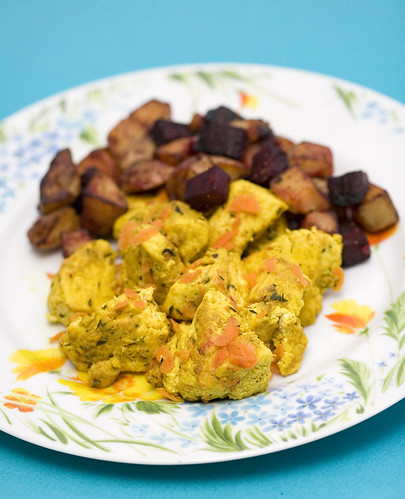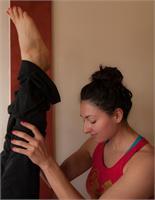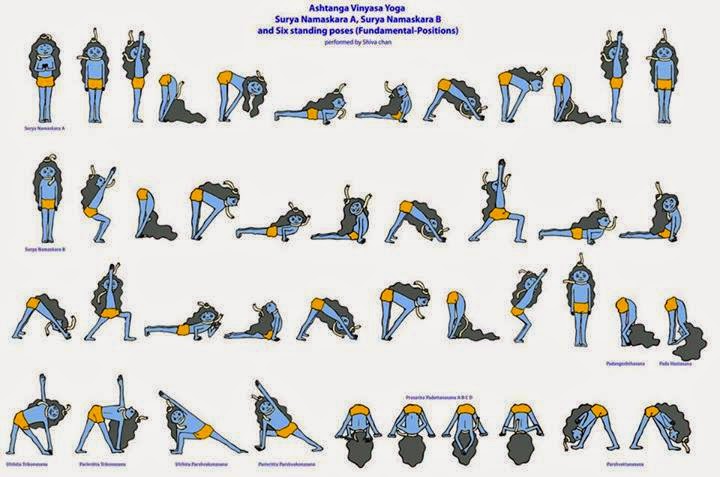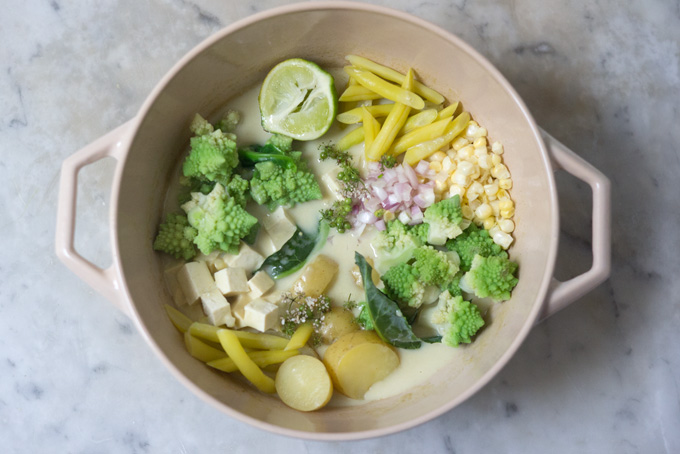Journey Across India from Mike Matas on Vimeo.
Jun 25, 2014
Jun 23, 2014
Jun 22, 2014
Jun 21, 2014
Ashtanga Yoga [Local]
Sunday self practice. Drop-ins with a current Ashtanga practice welcome.
Monday Mysore with new resident Authorized teacher Tonya Ruddick. Here's a video featuring Authorized teacher Nea Ferrier. (Tonya assisted Nea in Dubai.)
Jun 18, 2014
Jun 17, 2014
Things to do this week
Read the Yoga Sutras (free online)
Consider taking oil baths (here's how)
Where to find a KPJAYI authorized or certified teacher
What is parampara?
Led vs Mysore in a nutshell
Ashtanga yoga asana practice is more than bending
Practice daily
Essential classroom etiquette
Just rest on moon days
Learn the opening and closing chants
Practice daily (part 2)
Jun 16, 2014
Food Inspiration
 |
| Image: theppk.com |
 |
| Image: ohsheglows.com |
 |
| Image: thisrawsomeveganlife.com |
Jun 12, 2014
Moon Day Tomorrow and Some Inspiration
Albuquerque Ashtanga Yoga Shala resident teacher, Elise Espat, is teaching this week at The Yoga Shala in Winter Park, Florida. More information and registration here.
 PJ Heffernan is the current teacher in Albuquerque. PJ comes to us from Wisconsin where he teaches at his shala just west of Milwaukee in Waukesha. Yes, that is the same guy from the documentary "Mysore Magic". He'll be here through next week so be sure to get ye to practice. View schedule and register here.
PJ Heffernan is the current teacher in Albuquerque. PJ comes to us from Wisconsin where he teaches at his shala just west of Milwaukee in Waukesha. Yes, that is the same guy from the documentary "Mysore Magic". He'll be here through next week so be sure to get ye to practice. View schedule and register here. Tomorrow is a moon day. All classes are cancelled and do take rest from asana practice.
Some moon day reading from around the web:
“Through practicing asanas, your mind should change. That is the transformation that happens within you….Then you are a true Ashtanga practitioner, not just bending your body…Practice should not be just two hours, this practice must be for the whole day, whole life…Then there will be meaning to your practice.”
- Sharath Jois, Krista Shirley's conference notes
 "Don’t hurry, this practice take time, the more you try to rush
it, the more you will miss what it is actually about.... Everything
has its own time."
"Don’t hurry, this practice take time, the more you try to rush
it, the more you will miss what it is actually about.... Everything
has its own time."- Saraswathi
"It is very important to understand yoga philosophy: without philosophy, practice is not good, and yoga practice is the starting place for yoga philosophy. Mixing both is actually the best."
- Sri K. Pattabhi Jois, "An Interview with K Pattabhi Jois: Practice Makes Perfect"
"Yoga teachers say: Practice once a week, and you’ll get sore. Practice three times a week, and you’ll get FIT. Practice every day and you will transform your life."
- The Purple Mat Blog
"[Mysore] provides the space to be learn directly and almost privately from a teacher, but within the context of a group environment. A student is introduced to the practice at the appropriate pace for them. Poses are taught in a way that is right for that specific body, with its own limitations and strengths. It’s a very individualized process, yet firmly rooted in a tradition and a community. Mysore offers the opportunity to be inspired by other practitioners, of all levels, without practice becoming a competition, since everyone is practicing the poses that were given to them, at their own pace."
- Frances Harjeet
"It was harder NOT to practice actually. I realized then that you could chop off my arm or leg and I would still practice. I don't do it because I should. I do it irrationally because I love it.
- PJ Heffernan
Jun 11, 2014
Jun 10, 2014
Jun 9, 2014
PJ Heffernan in Albuquerque
June 11-22, 2014
PJ will be leading the shala's ongoing morning Mysore practice.
View Schedule.
Not a current student? Register now.
Beginners and new students are welcome and encouraged to attend.
Book a private session:
heffernanwellness@hotmail.com
PJ is a KPJAYI Level 2 Authorized ashtanga yoga teacher from Wisconsin.
Jun 8, 2014
How Yoga Asanas Change our daily life
Jun 6, 2014
Incredible India {Documentary}
Welcome to India
"Learning how to survive on an increasingly crowded planet is probably our ultimate challenge. But there is one place, home to over a sixth of the world's population, which is already making a good shot at adapting: welcome to India. This extraordinary observational series casts aside the usual preconceptions about the sub-continent, and lets a few of India's 1.2 billion show how their world really works. With astonishing access into the densest districts of Kolkata and Mumbai, it celebrates the impressive resourcefulness, resilience and absolute pragmatism of those living and working there, and reveals the psyche needed to get ahead in the biggest of crowds. This follows two main characters as they employ all their ingenuity to carve out a home. With more people moving to cities in India than anywhere else on Earth, securing that place you can call home is vital for nurturing your family's future. Kaale has come to Kolkata in search of gold - incredibly, he earns a living by sweeping the streets of the jewellery district for stray gold dust. But to fulfil his business ambitions, he must escape his landlord and rent a room of his own. His plan pushes even his resourcefulness to the limit: dredging for gold in Kolkata's drains. Rajesh and his wife Sevita have created their home on a Mumbai beach after their controversial love marriage. They support their kids' future with some impressive improvisation, including running their house as a makeshift beach pub selling cane liquor. But then eviction by the Mumbai council threatens their home for good."
Jun 5, 2014
Trouble Sleeping & Intermediate Practice
Student Question
Q. Since I’ve started practicing intermediate series I’ve had trouble falling asleep. I also wake up in the middle of the night and have a hard time falling back to sleep. Do you have any tips?
A: The intermediate series is a stimulating and dynamic practice. It is not uncommon for students to experience many changes in their lives as the postures begin to weave themselves into the subtle body. Before we go into this, let’s look at the primary series and go from there.
The Primary Series is called ‘Yoga Chikitsa’ or yoga therapy. The focus is on detoxing the physical body. First, the postures work to ‘wring’ the internal organs. Correct foot and heel position, binding etc is crucial. The wringing action squeezes stagnant blood and toxins from the muscles/organs. The vinyasa between postures provides fresh blood to those same areas and as the body moves, internal heat is cultivated. Next, steady rhythmic breathing is what keeps the heat sustained and supported; the vehicle for detoxification. This breathing induces a calming and meditative effect on the mind and pratyahara (sense withdrawal) is possible. When we combine all of these actions simultaneously we experience Yoga.
Detoxification is happening on mind AND body.
It is common for practitioners to experience flu like symptoms as the purification process takes place. This is one of the reasons daily practice is important. The impulse will be to rest however unless there is fever, practice daily (5-6 days, moon days off) so toxins can be thoroughly removed. This does not mean that you will never get sick or that the body remains in a perfectly cleansed state. We are constantly taking in toxins either through food/water, our environment or even the way in which we think/speak to ourselves and others. It simply means that we are in a certain state of balance. As a friend and teacher once said ‘Between life and death there is illness and recovery’. Our purpose in life is to find a place that is balanced for as long as possible.
Intermediate series is called ‘Nadi Shodhana’. Now that the physical body is (more or less) purified, we begin to work on the subtle body, the Nadi system. Some explain this as ‘purification of the nervous system’ but it’s more subtle than this. The subtle body is made up of chakras, pranic streams known as vayus (5 pranas) and nadis, the passageways in which the life force (prana) can move freely and evenly. These passageways are clogged and unbalanced in most people. They must be purified before a practitioner is able to experience higher and more subtle states of Yoga.
Throughout the intermediate series the postures bend and twist the spine, the largest nerve channel in the body, creating a ‘Nerve Cleansing’ effect. This precise work on the spine will create a stimulating effect on the subtle body which can show up in several ways. For some this includes difficulty sleeping, peaks and valleys in energy level and heightened emotional response/reactivity…for starters. Where you stop in the intermediate series will change how you experience the day to day, moment to moment.
Here’s what I love about the Ashtanga method. It requires you to take care of yourself. Seriously. Not some times, not part-time, all the time. Late nights, partying, drinking, drugs and gossiping, even once in awhile, will create more devastation to the body, mind and spirit once this cleansing process has begun. Be respectful of this powerful system. Move through your day intelligently, with awareness and Ahimsa. Rest to let the practice work in a beneficial way. Without proper rest, there will be problems both physical and psychological.
Here are some suggestions for getting the rest that you need.
1) Make sure you practice the entire finishing sequence without shortcuts or time constraints.
Many students rush through the finishing part of the practice either because they have not allowed enough time or they consider it a ‘cool down’. The finishing sequence is very important and crucial for the entire practice and in your daily life. The finishing sequence neutralizes the physical and subtle body, nervous and other systems etc. Bringing everything to balance, this is where most physical pain (especially back pain) can be alleviated. This provides a subtle protection as you go out into the world.
In fact, this is where the truly ancient and essential postures are practiced. For example, Sirsasana and Sarvangasana are considered the king and queen of all asanas. Their benefits include purifying the blood, lungs, heart, stomach, digestive system and strengthening Amrita Bindu. Each asana in finishing has many benefits. See ‘Yoga Mala’ by Sri K Pattabhi Jois for further information Sarvangasana pg 111 &112 and Sirsasana pg 119-123.
I recommend 50 breaths in Sarvangasana and Sirsasana and 15 breaths in all the other postures. Consider this another practice and allow yourself 30 minutes for finishing.
2) Keep all electronics out of the bedroom.
Viewing a brightly lit screen can create insomnia. They have a direct alerting effect and a melatonin-suppressing effect as well. Get an old fashioned alarm clock and keep the phones, iPads and computers outside of the bedroom.
3) Spend the last hour or so before bed, getting ready for bed – the hours for sleep are meant to be healing. Prepare for this by creating rituals that support the process.
- Go to bed early (before 10pm)
- No internet surfing at least an hour before bed.
- 10 minute light meditation is helpful.
4) Some Ayurvedic tips:
- Take an oil bath or shower with almond or coconut oil (depending on your Ayurvedic constitution) before bed.
- Drink warm milk with cinnamon and honey. I prefer to flash pasteurize raw milk myself.
- Ghee on the soles of the feet, temples and top of the head works like a sleeping pill : )
- Banyan Botanicals ‘Tranquil Mind’ is great for calming the mind without leaving you feeling lethargic or mentally constipated.
5) Diet tips:
- Use sugar moderately. This can be challenging for an Ashtangi. We tend to reach for sugar as an immediate energy boost. The crash later, weakened immune system and lowered energy levels will inevitably effect practice, day-to-day job and activities. Generally speaking, not worth it. Instead try fruits, (though not past 4pm as this ferments in the stomach turning into vata, gas, flatulence) dates, sweet potato mash. Sweet foods that are nourishing and soothing to the soul.
- No caffeine past noon. While Sharath Jois is a well known advocate of coffee, ‘No coffee, No prana’, he’s referring to South Indian coffee which is a much lighter version mixed with chicory, milk and sugar. It is not the keep you up for three days version we have here in the west. Use moderately, no problem.
- Eat more whole foods and less processed foods, fresh fruits and vegetables.
- Cook for yourself more. Eat out less. Restaurants exist by making a profit, not healing you. The more you eat out, the more likely you will be eating frozen, processed, GMO foods and other additives and preservatives. Shopping and cooking for yourself will ensure you are eating what you want/need. You will feel better and your savings account will too.
- Khichadi is delicious, easy to make and nourishing for the soul. Here’s a great recipe
Hopefully this will provide some helpful tips. Moving through the daily practice without completely driving yourself (and others) crazy is possible, enjoy!
continue reading at Mysore SF
Jun 3, 2014
A glimpse of Mysore
Jun 2, 2014
Inspiration: Krista Shirley
KPJAYI Authorized teacher Krista Shirley practicing third series before teaching her workshop in Panama. May 24, 2014. The video demonstrates Bhairavasana through Galavasana in Advanced A series of Ashtanga Yoga.
Jun 1, 2014
May 30, 2014
Summer schedule, how to get back in the game, and a short video intro with David Robson
A: Yes, of course you should come back to practice! Practice is effort toward steadiness of mind. Don't worry about completing some acrobatic feat. What is really interesting, really what it is about is just showing up. So okay, you got a little distracted. You can have a fresh start tomorrow. In terms of asanas, just start small and slowly do a little bit more each day, couple of days, weeks, or even months. It depends on how long you took off... No matter. It will probably take some time for things to feel natural again and to get into the daily rhythm and that is okay. While time off is not recommended, the good thing about it is that when you start practicing again you'll quickly realize why you missed it so much and it will probably be more difficult to let it go again when life gets stressful. No fearing, you come! (Original post here)
Read David's post on "ujjayi".
And learn more about initiating your practice.
May 29, 2014
Food Inspiration: Recipes of the Day
via Oh She Glows
May 28, 2014
The Short Summer Yoga Reading List
Yoga Sutras
Bhagavad Gita
Hatha Yoga Pradipika
I Am That
Practice
The Wisdom of No Escape: And the Path of Loving-Kindness
Ashtanga
Yoga Mala
Krishnamacharya: His Life and Teachings
Stories
Mahabharata
Ramayana
Cooking
The Kind Diet
The Yoga Cookbook
Eat-Taste-Heal: An Ayurvedic Cookbook for Modern Living
Beach Reads
Guruji: A Portrait of Sri K. Pattabhi Jois Through the Eyes of His Students
Shantaram
Siddartha
The Journey Home
Holy Cow
The Alchemist
Cat's Cradle
Enlightenment for Idiots
Yoga School Dropout
It's a Long Way to the Floor
The Dharma Bums
Check out the Shala's library wishlist for more ideas:
http://ashtangayogaalbuquerque.com/library
Popular Posts
-
"I was disappointed to find that so many novice students have taken Ashtanga yoga and have turned it into a circus for their own fam...
-
First off- you should ALWAYS support your Shala and buy a rug locally . If they don't carry something you want, just ask! They wil...
-
From Pattabhi Jois at the Ashtanga Yoga Shala: "That day is very difficult day. Two stars one place (conjunction) is goi...
-
Highly recommended! Relieve aches, pains and stiffness with oil baths By Kimberly Flynn Source Living Mysore Oct '08 Oil bath is ...
-
Yoga Mat. But which one? Originally published March 2010, Ashtanga Yoga Brooklyn Blog. New, improved, updated. Also, some of these a...
-
Here are some guidelines that we use at the Albuquerque Ashtanga Yoga Shala for a pleasant and productive practice environment. Every Shal...
-
"Dṛṣṭi means gazing point. There are nine dṛṣṭis in the āsana practice. If the dṛṣṭi indicated for the āsana is too difficult, one m...
-
I'm sick? Yes, practice at home. You don't want to get anyone else sick. Just do what you can. If you have a fever, just rest....









